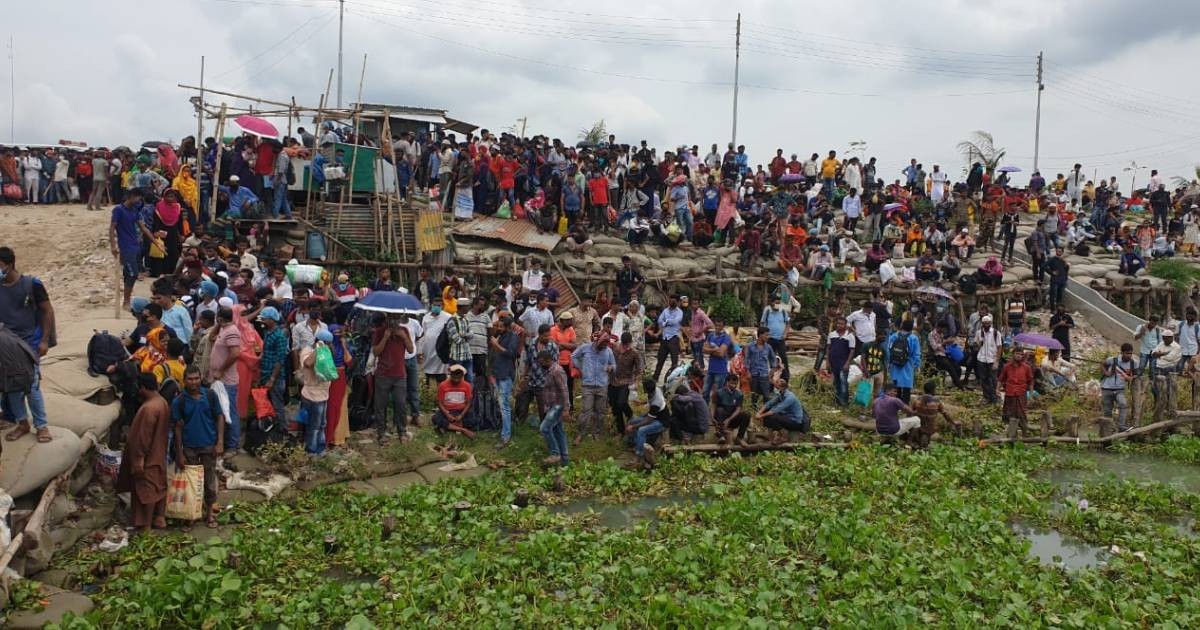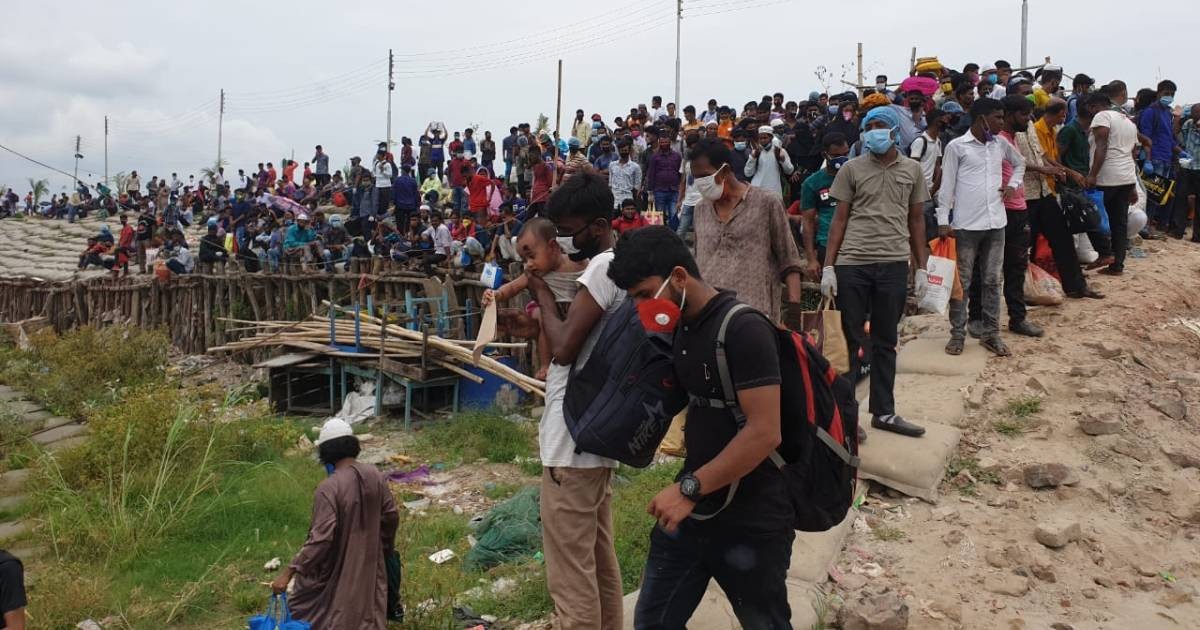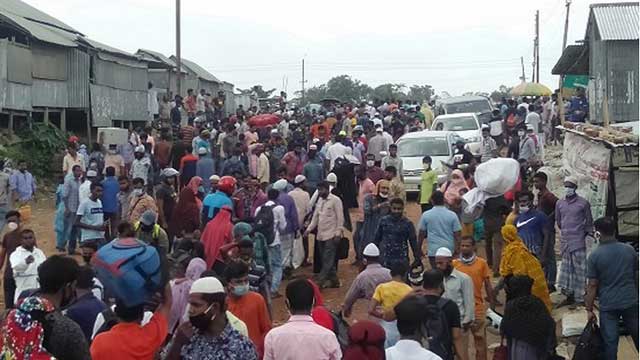The government’s decision to allow people to travel to their village homes to celebrate Eid is a “suicidal move” amid the coronavirus outbreak, which will help the virus spread to all corners of the country, experts fear.
They say the coronavirus situation will take a dangerous turn after Eid, scheduled to be celebrated on Monday, and warned that new cases and deaths will spike overwhelming the already outstretched healthcare system.
Bangladesh on Saturday announced detection of 1,873 new cases and 20 deaths. So far, the country has recorded 32,078 cases and 452 deaths. Most of the cases – 13,093 – have been reported from Dhaka City.
With Eid only a day away, a large number of city dwellers were seen leaving the capital through different exit points as the law enforcers withdrew their barricades and check posts.
Since public transport remains suspended, people left Dhaka by trucks, pickup vans, private vehicles, microbuses, motorcycles and human-haulers. Many home-goers hired private vehicles at exorbitant prices and most of the vehicles were packed with people.
‘Suicidal decision’
On Friday, Director General of Rapid Action Battalion Chowdhury Abdullah Al Mamun said people can travel to their village homes in their private vehicles on the occasion of Eid. This triggered an unprecedented flow of homebound people.

Talking Traffic Inspector Akhtar Hossain of Traffic Uttara division of Dhaka Metropolitan Police (DMP) said a small number of private cars and microbuses left the city due to strict monitoring in the last couple of weeks but the stream of vehicles intensified significantly on Saturday.
The Jatri Kalyan Samity, passengers’ welfare association, dubbed the government’s decision “apparently suicidal”.
It feared that failing to restrict people’s movement during Eid holidays would debacle attempts to contain coronavirus transmission and road accidents.
A section of car and microbus owners are exploiting the situation and are not even abiding by any health guidelines while carrying passengers, putting people at greater risk of infection.
Bangabandhu Sheikh Mujib Medical University (BSMMU) Vice-Chancellor Prof Kanak Kanti Barua said the situation will seriously deteriorate after Eid.
“The virus will now be transmitted to uninfected areas and the number of patients will increase sharply after Eid. The death rate may increase as hospitals will not be able to deal with a huge number of patients,” he warned.
Prof Barua said all hospitals will have to be equipped to treat COVID-19 patients in the days to come, depriving most-non-corona patients of treatment. “Many people suffering from other critical diseases will die for lack of treatment when the number of coronavirus patients will increase across the country,” he said.

He suggested everyone to maintain hygiene and social distancing so that family members and villagers do not get infected.
“Everyone should wear masks as it can lessen the transmission of the virus. When the infected and non-infected people come in close contact wearing masks, the virus may not spread,” he said.
Dr Be-Nazir Ahmed, former director (disease control) of the Directorate General of Health Services (DGHS), said over 80 percent areas in the country were free from coronavirus, but now these areas are at a high risk.
“Over 100,000 Eid congregations will be held across the country on Monday. If only two infected persons join each of the congregations, they can infect several lakh people in a day,” he said.
Mentioning that there are many asymptomatic patients, he said the government should take steps so that those who returned home move in a controlled way or remain in home quarantine to prevent the virus transmission.
BSMMU VC Prof Barua suggested enforcing a curfew so that people cannot move here and there during the Eid festival. “This can help slow the spread of the virus in rural areas,” he said.UNB
mj/





